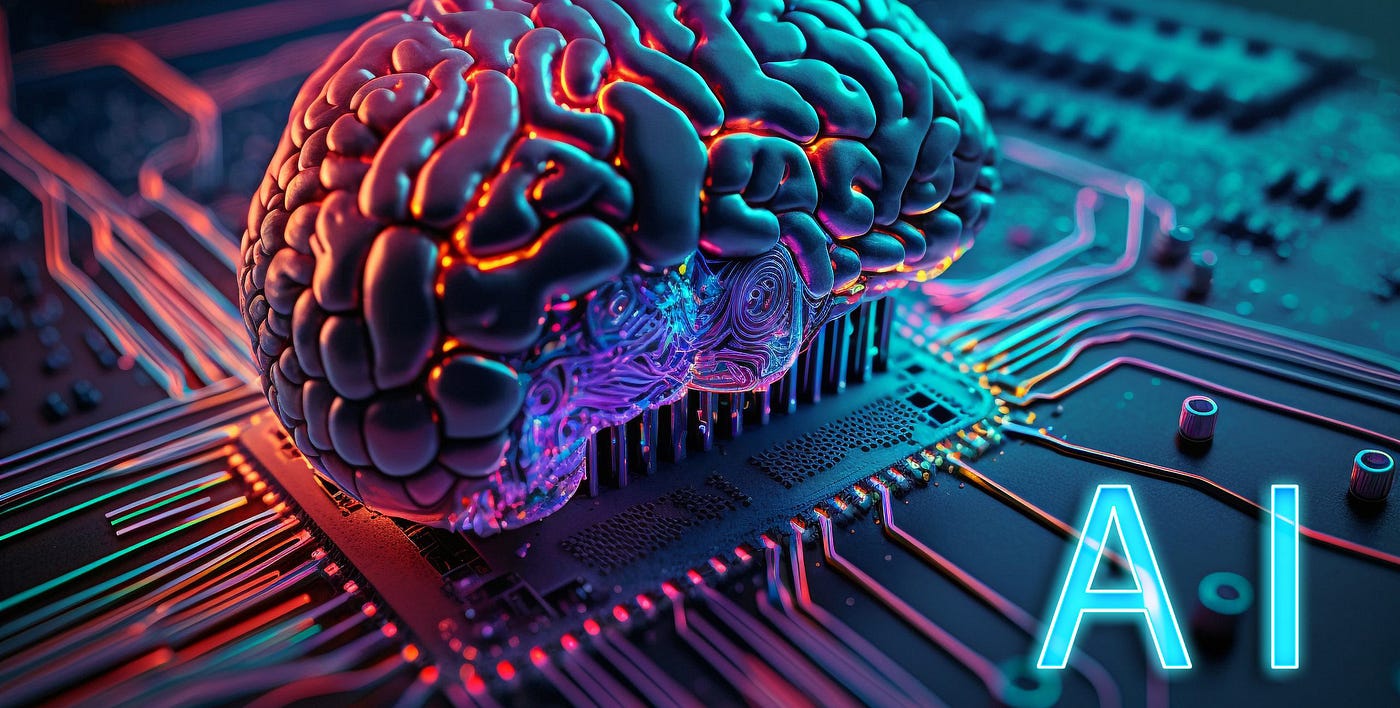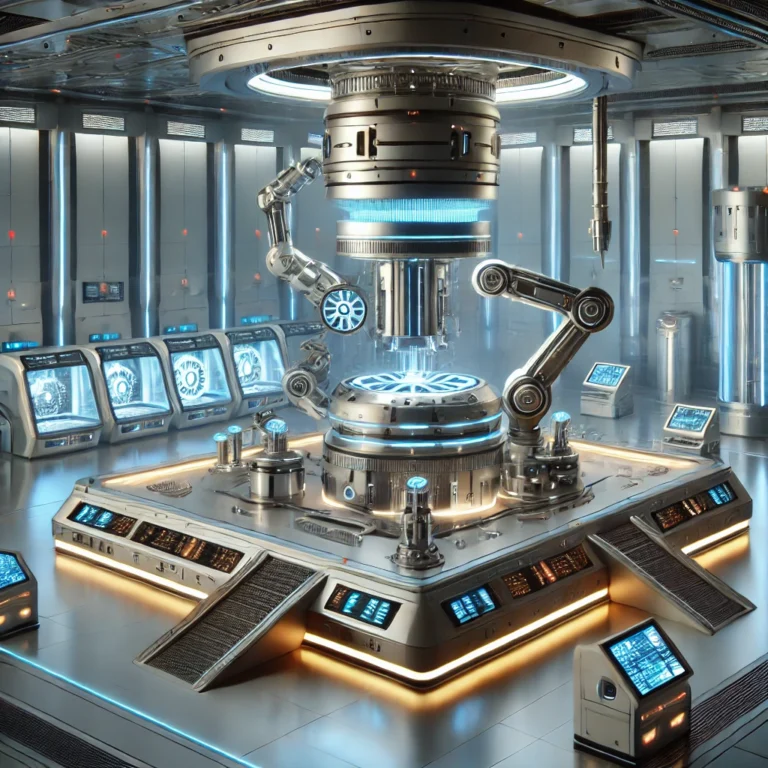Introduction to the Idegion Machine
The idegion machine represents a significant leap in technological innovation, merging advanced computational capabilities with practical applications across various sectors. At its core, an idegion machine is designed to process complex data sets and perform intricate computations that surpass traditional machines. This evolution in technology allows for the analysis and interpretation of information at unprecedented speeds, making it an essential tool for businesses striving to enhance their operational efficiency.
In the contemporary technology landscape, the relevance of the idegion machine is underscored by its versatility. Industries such as healthcare, finance, and manufacturing are increasingly adopting this technology to foster innovation and drive productivity. For instance, in healthcare, the idegion machine aids in the processing of vast amounts of patient data, facilitating better decision-making and personalized treatment plans. Similarly, the finance sector leverages its capabilities for real-time data analysis and risk assessment, ensuring informed investment strategies.
The advent of the idegion machine highlights a paradigm shift towards embracing intelligent systems capable of elevating industry standards. It plays a pivotal role in automating mundane tasks, thereby freeing up human resources for more strategic initiatives. Furthermore, its adaptability allows for integration with existing platforms, making it a feasible option for organizations reluctant to discard legacy systems in favor of cutting-edge technologies. As the digital landscape continues to evolve, the idegion machine’s significance is expected to resonate further, marking a transformative phase in how organizations harness data to unlock unprecedented levels of innovation.
How the Idegion Machine Works
The idegion machine represents a paradigm shift in manufacturing technology, leveraging advanced mechanisms and systems to optimize performance. At its core, this innovative machine is composed of several critical components, each designed to enhance efficiency and productivity. Among these components, the propulsion system is vital; it employs state-of-the-art motors and actuators that provide unmatched speed and precision in operations. This system further enables better energy management, reducing overall consumption while maximizing output.
Another essential aspect of the idegion machine is its integrated digital interface, which facilitates seamless communication between the operator and the various machine components. This interface is engineered to provide real-time data analytics, allowing users to monitor performance metrics and make informed decisions quickly. Such capabilities are often absent in traditional machines, which can lack the ability to adapt to operational changes dynamically.
Additionally, the idegion machine employs advanced robotics and automation technologies, setting a new standard in the industry. With precision-engineered robotic arms capable of intricate maneuvers, the machine can execute complex tasks that would typically require multiple operators and extended timeframes. The integration of artificial intelligence allows for predictive maintenance, minimizing downtime and optimizing workflow efficiency.
Compared to traditional machines, the idegion machine exhibits significant advancements in flexibility and scalability. Conventional manufacturing equipment often necessitates extensive reconfiguration for differing tasks; in contrast, the idegion machine can swiftly adapt to various production needs, making it an invaluable asset in industries requiring quick turnaround times.
In conclusion, the idegion machine’s innovative design and advanced technologies enhance its operational capabilities, positioning it as a leader in modern manufacturing. Its core components work harmoniously to ensure high efficiency and superior output, rendering it a highly competitive alternative to conventional machines.
Applications of the Idegion Machine

The idegion machine is gaining recognition for its transformative capabilities across various sectors, including manufacturing, healthcare, and renewable energy. Its versatility allows for the resolution of complex problems while enhancing operational efficiency.
In the manufacturing sector, the idegion machine has been integrated into production lines to streamline processes and reduce waste. For instance, a prominent automotive manufacturer implemented this technology to monitor supply chain logistics, which led to a significant reduction in bottlenecks and idle time. By utilizing real-time data analytics provided by the idegion machine, the company improved its production output by 25% within six months of implementation.
In healthcare, the idegion machine plays a crucial role in enhancing patient care and operational effectiveness. A notable case study involves a metropolitan hospital that adopted the idegion machine’s capabilities to analyze patient flow and resource allocation. By employing the machine’s advanced algorithms, the hospital optimized its scheduling system, reducing patient wait times by 30% and significantly improving patient satisfaction ratings. Such implementations highlight the machine’s ability to enhance decision-making processes based on accurate and timely data.
Renewable energy is another sector benefiting from the idegion machine’s innovative capabilities. For instance, a wind energy company utilized the idegion machine to optimize turbine efficiency through predictive maintenance strategies. By analyzing predictive data trends, the company could forecast potential turbine failures, allowing for timely interventions that minimized downtime. As a result, they achieved a 20% increase in energy production from existing resources.
The diverse applications of the idegion machine clearly illustrate its potential to revolutionize various industries by addressing specific challenges while enhancing productivity and efficiency.
Benefits of Implementing the Idegion Machine
Organizations are increasingly recognizing the transformative potential of the idegion machine. One of the most significant benefits is the marked improvement in productivity. By automating routine tasks and streamlining complex processes, businesses can allocate their resources more effectively. A recent study indicated that companies that adopted the idegion machine experienced a productivity increase of up to 40%, enabling employees to focus on higher-value tasks that contribute to organizational growth.
Cost reduction is another compelling advantage associated with implementing the idegion machine. With its ability to optimize resource allocation and minimize wasted efforts, organizations can see substantial financial savings. For instance, a company in the manufacturing sector reported a 30% decrease in operational costs after integrating the idegion machine into their workflow, primarily due to efficiency improvements and reduced labor costs.
Furthermore, enhanced accuracy is a pivotal aspect of the idegion machine’s capabilities. By eliminating human errors and maintaining consistent output quality, organizations can enhance their overall service levels. Data from businesses that utilize the idegion machine show a dramatic reduction in errors, with reports indicating up to a 70% decrease in quality-related complaints. This precision not only builds customer trust but also contributes to better compliance with industry regulations.
Sustainability is an increasingly critical consideration for modern organizations, and the idegion machine plays a vital role in this area as well. By enabling smarter manufacturing processes and reducing energy consumption, companies can significantly lessen their environmental impact. For example, firms implementing the idegion machine have reported a reduction in energy usage by up to 25%, contributing positively to their sustainability goals.
By recognizing these multifaceted benefits associated with the idegion machine, organizations can position themselves for long-term success, driving innovation while addressing contemporary operational challenges.
Challenges and Considerations
Integrating the idegion machine into existing processes presents several challenges that organizations must navigate to fully realize its innovative capabilities. One of the primary considerations is the cost of implementation, which can be significant. Organizations may need to assess their current infrastructure and determine whether upgrades or modifications are necessary to accommodate the idegion machine. This may involve investing in new software, hardware, or related technology to ensure compatibility and operational efficiency.
Moreover, the expense extends beyond the initial setup. Organizations should also consider ongoing maintenance costs, which can arise from technical support, updates, and troubleshooting. Establishing a clear budget and understanding the return on investment is essential for making a sound financial decision regarding the integration of the idegion machine.
Another important factor to consider is the need for training. Employees may require extensive training to effectively operate the idegion machine and leverage its full functionality. Companies should develop comprehensive training programs tailored to different roles within the organization. The goal is to ensure that staff members are not only comfortable using the machine but are also adept at utilizing the insights it generates. A lack of proper training can impede productivity and negate the benefits of implementing new technology.
Additionally, organizations may face technological hurdles during the transition phase. Issues such as data migration, software compatibility, and system integration can present obstacles that require strategic planning and problem-solving. To mitigate these challenges, companies should engage with experienced vendors and consultants who can provide insights and solutions tailored to their specific circumstances. By addressing these considerations thoughtfully, organizations can set a solid foundation for a successful integration of the idegion machine, paving the way for enhanced innovation and efficiency.
Future Prospects of the Idegion Machine
The idegion machine represents a pivotal milestone in technological innovation, with its future prospects signaling significant advancements in various fields. As industries increasingly adopt data-driven approaches, the idegion machine is poised to become a central tool in this digital transformation. Emerging trends indicate a growing emphasis on integrating artificial intelligence (AI) and machine learning technologies, which have the potential to enhance the idegion machine’s capabilities substantially.
The incorporation of AI into the idegion machine could facilitate improved data analysis, enabling more insightful interpretations and decisions based on complex datasets. By leveraging machine learning algorithms, the idegion machine could become adept at identifying patterns and trends within the data, thus providing businesses with actionable insights. Such enhancements may lead to increased efficiency, reduced error rates, and more precise predictions, ultimately transforming how organizations leverage their data.
Moreover, ongoing research and investment in the idegion machine technology are likely to yield novel applications across diverse sectors. From healthcare to finance, the adaptability of the idegion machine allows it to address specific challenges unique to each industry. For instance, in healthcare, it could enable more accurate diagnostic tools or personalized medicine approaches, while in finance, it might optimize trading strategies or fraud detection mechanisms.
Simultaneously, the advent of edge computing offers exciting possibilities for the idegion machine. By allowing data processing closer to its source, this trend could make the idegion machine more responsive and efficient, enhancing real-time decision-making capabilities. The combination of these technological advancements signals a promising future for the idegion machine. As it evolves, it holds the potential to not only reshape industries but also redefine our understanding of what machines can achieve in an increasingly complex world.
Comparative Analysis: Idegion Machine vs. Traditional Machines
The emergence of the idegion machine has prompted a re-evaluation of traditional machines across various sectors, particularly concerning their performance and efficiency metrics. Traditional machines have dominated industries for decades, offering reliability and established methodologies. However, the idegion machine introduces innovative capabilities that significantly enhance operational productivity and adaptability.
Performance metrics are pivotal when drawing comparisons between the idegion machine and its traditional counterparts. In terms of speed, many traditional machines are limited by their designed processes and the time required for completion. Conversely, the idegion machine utilizes advanced algorithms and automation processes, leading to significantly reduced operational times. This efficiency allows businesses to meet higher demands while maintaining quality standards.
Moreover, efficiency factors in energy consumption and resource utilization are critical in this analysis. Traditional machines often operate with significant energy requirements, resulting in higher operational costs and environmental impacts. The idegion machine, designed with a focus on sustainability, optimizes energy use to minimize waste. Its advanced features enable better monitoring and adjustment of energy consumption in real-time, offering a compelling argument for businesses looking to reduce their carbon footprint.
Furthermore, the idegion machine complements existing technologies by integrating with them seamlessly. Traditional machines can exist within an operational framework using the idegion machine as a driving force for transformation and innovation. Its ability to gather and analyze data enhances decision-making processes, ultimately providing a competitive advantage over traditional systems alone.
In conclusion, while traditional machines remain foundational within their industries, the idegion machine exemplifies the future of technological advancements. By prioritizing performance, efficiency, and adaptability, the idegion machine uniquely positions itself as a transformative tool that redefines industry standards.
Case Studies of Successful Idegion Machine Implementations

The idegion machine has demonstrated its transformative capabilities across various industries, significantly enhancing operations and functionality. This section delves into a selection of case studies illustrating successful implementations of the idegion machine, the challenges encountered, solutions provided, and the impressive outcomes that followed.
One notable case study involves a leading manufacturing firm struggling with inefficiencies in production scheduling. Faced with delays and increasing operational costs, the company sought a robust system for optimizing its processes. Implementing the idegion machine allowed for real-time analytics and predictive modeling to streamline production schedules. This innovation resulted in a 25% reduction in downtime and a 30% increase in overall productivity, demonstrating the machine’s effectiveness in solving complex logistical challenges.
Another example can be found in the healthcare sector, where a hospital network encountered difficulties in patient data management. With the idegion machine, the network was able to consolidate patient records from various departments into a single, easily accessible platform. This integration not only improved data accuracy but also enhanced patient care by allowing healthcare professionals to make faster, informed decisions. Post-implementation, patient wait times decreased by 40%, showcasing how the idegion machine can address specific, industry-focused needs.
A third case study highlights a retail company that struggled with inventory management. With high rates of stockouts and excess inventory, the company faced financial losses and customer dissatisfaction. Utilizing the idegion machine’s data-driven insights, the retailer optimized its supply chain processes, leading to a more accurate inventory forecasting system. As a result, the organization reported a 35% reduction in stockouts and a 20% decrease in excess inventory levels, reinforcing the idegion machine’s role in enhancing business sustainability and overall customer satisfaction.
These case studies exemplify the versatile applications of the idegion machine across different sectors, proving its capacity to resolve industry-specific challenges and deliver substantial benefits to organizations.
Conclusion: The Impact of the Idegion Machine on Industry
As we have discussed throughout this article, the idegion machine represents a significant advancement in technological innovation across various industries. Its capabilities extend beyond traditional machines, enabling a more sophisticated approach to data processing, automation, and operational efficiency. This transformative tool is reshaping enterprise dynamics by integrating artificial intelligence and machine learning, allowing for enhanced decision-making processes and improved productivity.
The idegion machine is not merely a technological addition; it symbolizes a shift towards a future where businesses can harness vast amounts of data in real-time, leading to smarter, more agile operations. Companies that adopt the idegion machine can expect to see improvements in their ability to respond to market changes, optimize resource allocation, and deliver higher-quality products and services to their customers. The implications of such advancements are far-reaching, potentially giving organizations a competitive edge in their respective markets.
Moreover, as technology evolves, the potential applications of the idegion machine are bound to expand, providing further opportunities for innovation. From healthcare to manufacturing, the functionalities embedded in the idegion machine will pave the way for more customized solutions tailored to the unique challenges faced by various sectors. This demonstrates not only the machine’s versatility but also its capacity to drive industry-wide transformation and growth.
In conclusion, the idegion machine stands out as a pivotal asset for businesses aiming to thrive in an increasingly complex and data-driven world. Organizations are encouraged to explore the capabilities of the idegion machine further, as embracing this technology could be essential for staying ahead of the curve and unlocking new levels of operational potential. The journey towards a more innovative future begins with a commitment to harnessing the power of the idegion machine.















